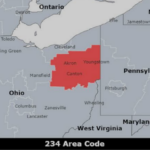Receiving a text message from a short, 3-digit number can be puzzling. If you’ve recently received a text from 889, you might be wondering about its origin, its purpose, and most importantly, its legitimacy. While the text from 889 is a valid communication channel in some parts of the world, its meaning and authenticity can change dramatically depending on your location.
This article will break down what the 889 short code is, who uses it, and what you should do if you receive a message from it, with specific advice for mobile users in Egypt.
What is a Short Code?
First, it is essential to understand what a short code is. These are special, abbreviated phone numbers, typically 3 to 6 digits long, that are used by businesses and organizations to send and receive text messages at a high volume. Common uses include sending marketing alerts, appointment reminders, and security verification codes. A crucial aspect of short codes is that they are country-specific. A code used by a major company in one country may be used by a different entity or not be in use at all in another.
The Primary User of the 889 Short Code
Internationally, the text from 889 is most officially and widely associated with T-Mobile, a major mobile network operator in the United States. For T-Mobile customers, the 889 short code is a legitimate channel used for sending important, non-promotional account notifications.
Common legitimate messages from this short code include:
- Data Usage Alerts: Notifying customers when they are approaching their monthly data or hotspot limits.
- Account Service Notifications: General, non-marketing communications regarding a customer’s plan or services.
Is a Text From 889 a Scam?
This is a nuanced question. While the 889 short code is officially used by T-Mobile in the U.S., scammers can use a technique called “spoofing” to make it appear as though a message is coming from a legitimate number. Therefore, you must always assess the content of the message.
Red flags to watch for:
- Unexpected Links: The message urges you to click a link to claim a prize, verify personal information, or fix a supposed account issue you were unaware of. Legitimate T-Mobile links often use their official
t-mo.codomain. - Requests for Personal Data: The text asks you to reply with your password, bank details, or other sensitive information. A real company will never ask for this via text.
- Urgent or Threatening Language: The message creates a false sense of panic, demanding immediate action to avoid a negative consequence.
The Context for Mobile Users in Egypt
For mobile users in Egypt on networks such as Vodafone, Orange, Etisalat, or WE, the 889 short code is not in use as an official channel for SMS communication. There are no registered services from local Egyptian companies that use this number to send texts.
Therefore, if you are in Egypt and receive a text from 889, you should treat it with a high degree of suspicion. It is almost certainly one of the following:
- A spoofed text from a scammer.
- A message sent by mistake, intended for a T-Mobile customer in the United States.
What Should You Do?

If you receive a text from 889, especially in Egypt, the safest course of action is to not interact with it.
- Do Not Reply: Replying can confirm to scammers that your number is active.
- Do Not Click Any Links: Clicking on a malicious link can compromise your personal information or install malware on your device.
- Delete the Message: Simply delete the text from your inbox.
By understanding that the text from 889 is primarily a T-Mobile U.S. short code, users in Egypt and elsewhere can correctly identify unsolicited messages from this number as suspicious and take the necessary steps to protect themselves.


